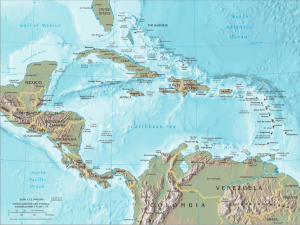Approximately eight months after the first autochthonous, or locally acquired chikungunya cases were reported for the first time in the Western Hemisphere on the island of St. Martin, the total number of imported cases has eclipsed a half million cases, according to new data released from the Pan American Health Organization (PAHO) today.

The official number of cases reported in the Latin Caribbean is now 501,644, while the number of indigenous cases reported in all the Americas stands at 508,122.
Six out of 10 cases have been reported from the Dominican Republic, which tallied 307,933 cases in Epidemiological Week 31, up 26,000 cases from last week. In addition to the DR, Guadaloupe reported 71,000 cases, Haiti reported nearly 65,000 and Martinique recorded 54,000. The French side of St. Martin, where the epidemic began has reported 4,500 cases.
In North America, the United States reported their 3rd and 4th locally acquired chikungunya cases in the state of Florida.
LISTEN: Chikungunya in the Western Hemisphere: An interview with a CDC expert
READ: Guidelines written to prepare the Americas for the intro of Chikungunya
Most people exposed to chikungunya will develop symptoms. Chikungunya does not often cause death, but the symptoms can be severe. The most common symptoms are high fever and severe joint pain. Other symptoms may include headache, muscle pain, joint swelling or rash. Most patients feel better within one week, but the joint pain can persist for months in some cases.
Some individuals may be more susceptible to severe diseases, including newborn infants, adults over age 65 and people with medical conditions such as high blood pressure, diabetes or heart disease. There is no specific treatment for chikungunya, but individuals can receive supportive care for relief of fever and joint pain. There is no vaccine for the virus.
Chikungunya is not spread from direct person to person contact, but can be transmitted from a sick person to a healthy person by the bite of an infected mosquito. For more infectious disease news and information, visit and “like” the Infectious Disease News Facebook page


2 thoughts on “Chikungunya tops 500,000 cases in Latin Caribbean”